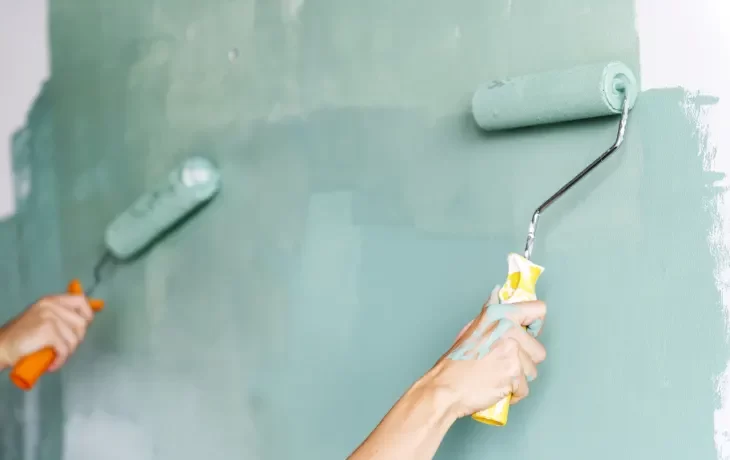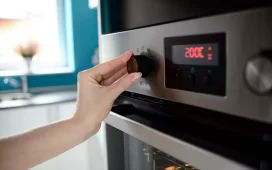Choosing the right paint isn’t just about color selection. A professional painting contractor understands that factors like room lighting, surface texture, and daily wear patterns significantly influence paint performance. Consider the room’s purpose and traffic patterns when selecting paint finish, as different areas require varying levels of durability and washability. High-moisture areas need special consideration to prevent mold and deterioration over time.
Surface Preparation Techniques
Proper surface preparation makes the difference between an amateur and professional finish. Before any paint touches the wall, thorough cleaning, scraping, and patching are essential. Professional painters know that investing time in preparation prevents common issues like peeling, bubbling, or uneven coverage. This includes addressing any underlying moisture issues, repairing drywall damage, and ensuring all surfaces are properly sealed.
Tools and Equipment Essentials
The right tools make a significant difference in the final result. A qualified house painter utilizes professional-grade equipment, from premium brushes and rollers to proper safety gear and surface protection materials. Quality tools ensure even coverage, crisp lines, and efficient application, ultimately saving time and providing superior results compared to basic painting supplies.
Color Coordination Strategies
Understanding color theory and its practical application in home design is crucial. Professional painter in Concord services know how to create cohesive color schemes that flow naturally throughout your home. This includes considering natural light patterns, room transitions, and architectural features to enhance your space’s overall aesthetic appeal. They can guide you in selecting colors that complement existing furnishings while meeting your style preferences.
Weather and Timing Considerations
Timing plays a crucial role in paint application and drying. Temperature, humidity, and ventilation all affect paint performance. Professional painters schedule projects during optimal conditions to ensure proper adhesion and drying. They also understand how different weather conditions impact both interior and exterior painting projects, adjusting their techniques accordingly.
Advanced Application Methods
Professional painting requires more than just rolling paint on walls. Proper cutting in, layering techniques, and specialized application methods ensure a flawless finish. This includes understanding how different surfaces require different approaches, from smooth drywall to textured ceilings, and knowing when to spray versus brush or roll.
Quality Control Measures
Professional painters implement strict quality control throughout the project. This includes careful inspection of surface preparation, paint consistency, coverage uniformity, and final finish. They understand how lighting affects appearance and check their work under various conditions to ensure perfection from every angle.
Protection and Clean-up Procedures
Protecting non-painted surfaces and ensuring proper clean-up are essential aspects of professional painting. This includes careful masking, floor protection, and furniture covering. Professional painters also know how to properly dispose of materials and clean up their workspace, leaving your home in pristine condition.
Post-Paint Maintenance Tips
Understanding proper paint maintenance extends the life of your paint job. This includes knowing how to clean painted surfaces without damaging the finish, when touch-ups might be necessary, and how to address common issues that may arise over time. Professional painters often provide maintenance guidelines specific to the products used in your home.
Long-term Care Solutions
A professional paint job requires ongoing attention to maintain its beauty. Understanding how different environmental factors affect paint longevity helps homeowners protect their investment. This includes regular inspections for potential issues, proper cleaning techniques, and knowing when professional touch-ups might be necessary to maintain the perfect finish.






